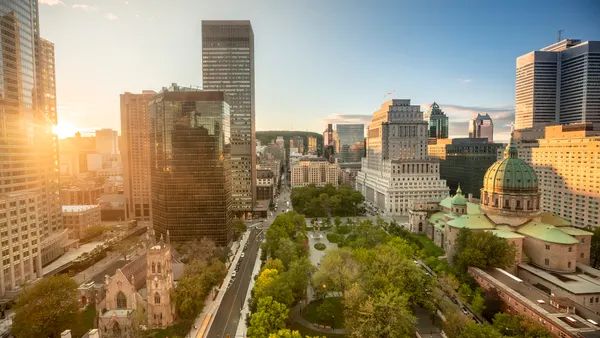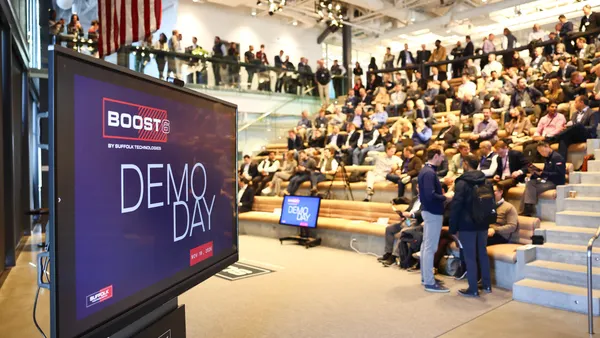Dive Brief:
- The Caisse de depot, Quebec's pension fund manager, has narrowed the bidder's list to five for its $5.5 billion light-rail project, according to CBC News.
- The five designated consortia — which have approximately six months to submit their proposals — will bid on two separate contracts, one for the construction of the rail and its 24 stations and another for train car supply and operation.
- The Caisse is providing $3 billion toward the project and will operate the system. The fund manager, according to CBC News, wants Quebec and the Canadian government to contribute the remaining $2.5 billion, although future profits are to benefit the Quebec Pension Plan.
Dive Insight:
Construction is expected to begin in the spring of 2017, with full operation by 2020. Officials anticipate that ridership will hit 31 million by 2021 and 43 million by 2031. The rail system will operate across much of Montreal and provide service to Trudeau International Airport.
WSP Global|Parsons Brinckerhoff will square off against SNC-Lavalin-Aecon for the construction portion of the project, while the teams of Parsons-Hyundai Rotem-Thales Canada, Bombadier Transportation, and Alstom Transport Canada-SNC-Lavalin will vie for the rail car contract.
While Canada already has a culture encouraging mass transit in many of its largest cities, metros across the U.S. are struggling with funding and both public and private support. For example, supporters of the $1.86 billion Minneapolis Southwest light-rail extension had to come up with an alternate funding plan after state legislators refused to provide the money necessary to secure a $900 million federal grant for the project. Local counties and the Metropolitan Council, Minneapolis' regional transportation agency, ended up filling in the $145 million gap.
On the other side of the issue, the Dallas Area Rapid Transportation board recently approved a controversial $2 billion spend on a light-rail expansion for its system despite public doubt that there is enough ridership potential. Critics of the expansion — which will connect more cities to Dallas-Fort Worth International Airport and pay for a new $1.3 billion downtown subway — say that DART has failed to consider the needs of bus and train customers through its policy of "rail over ridership."












